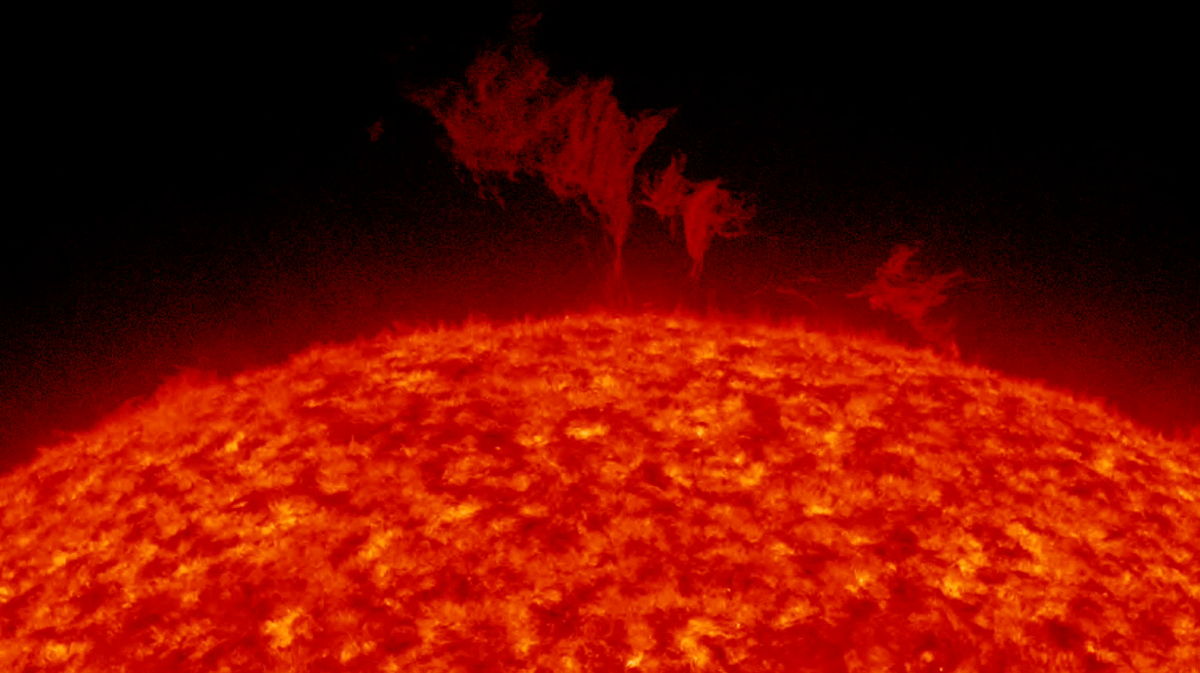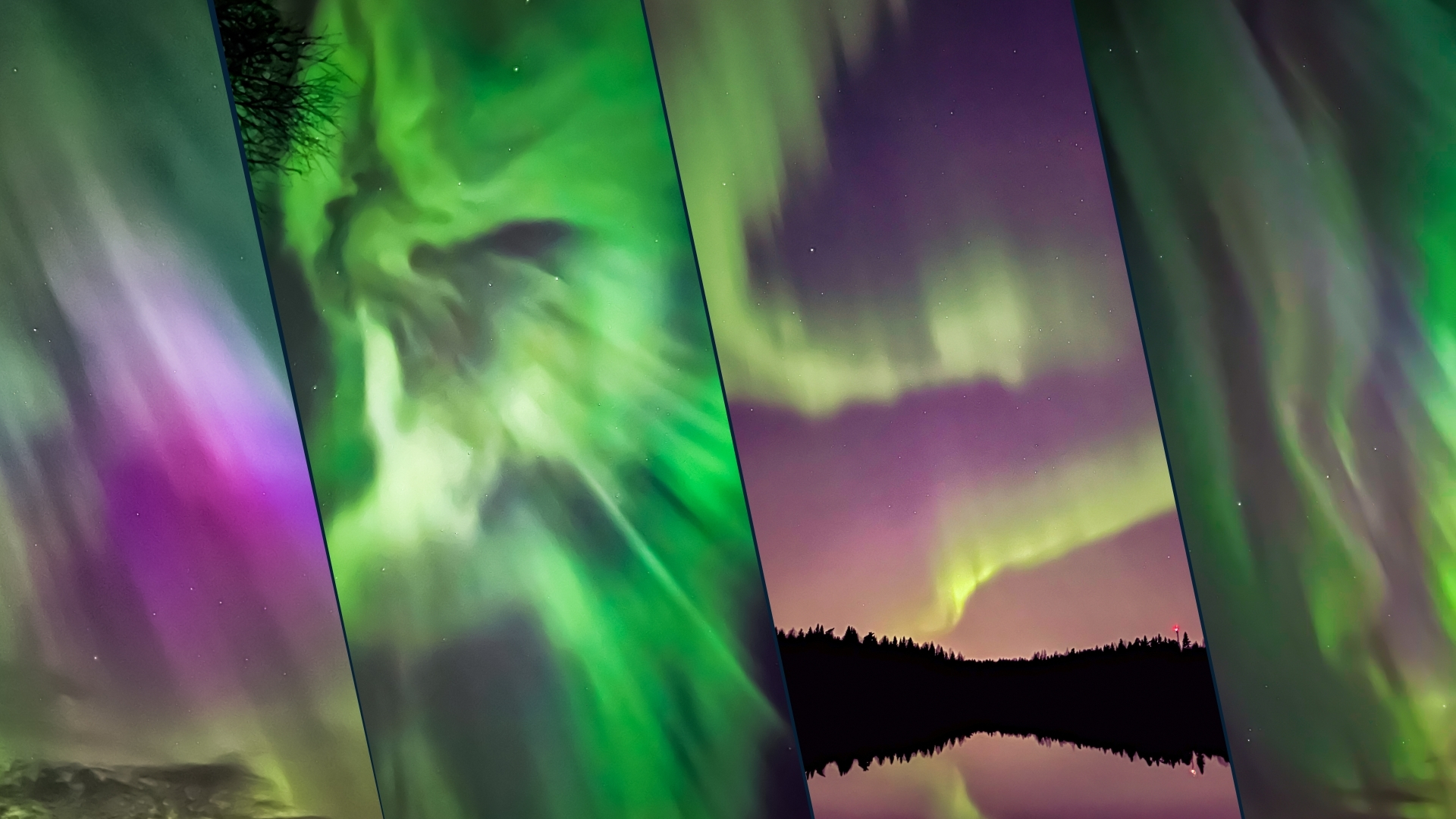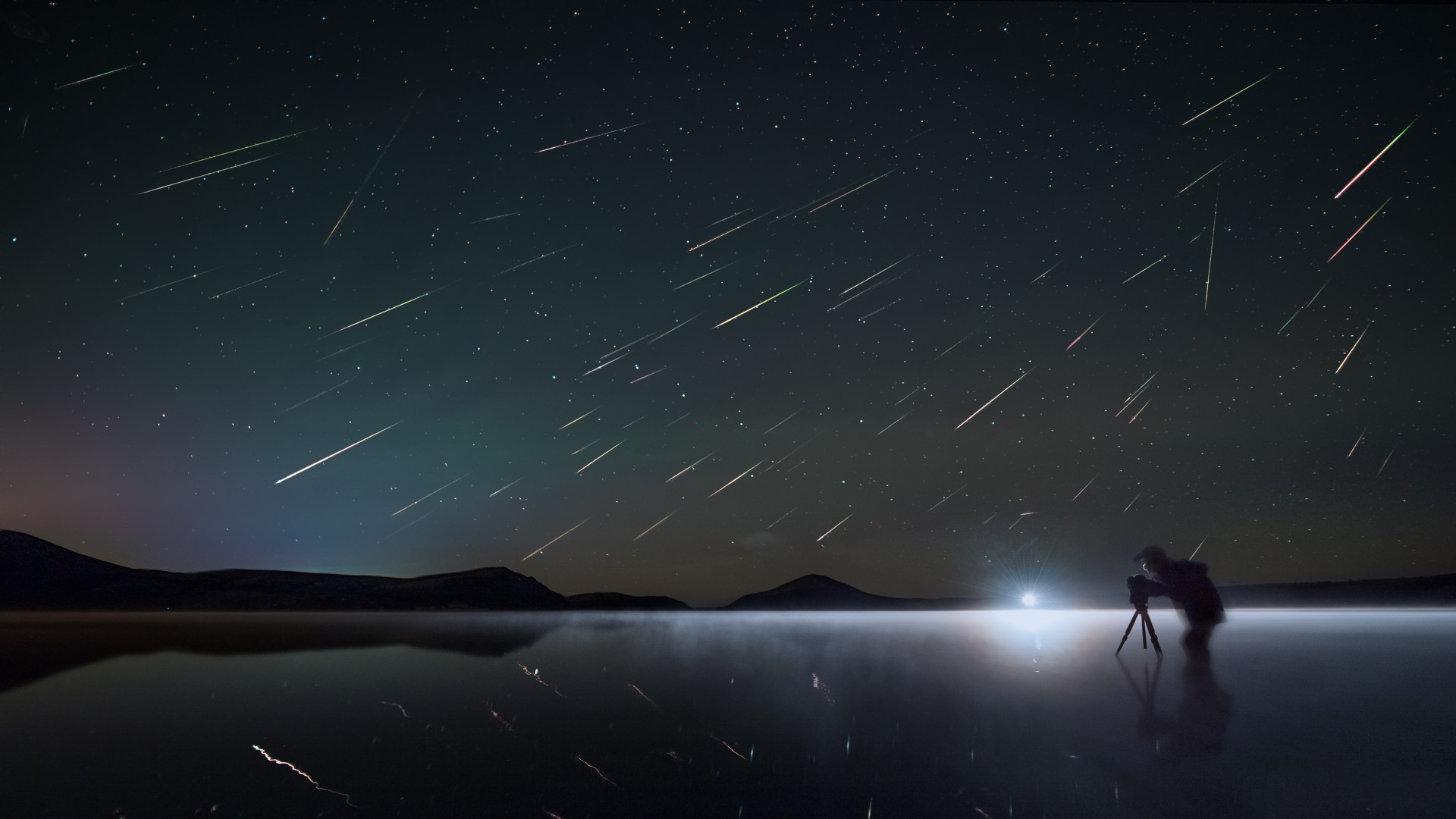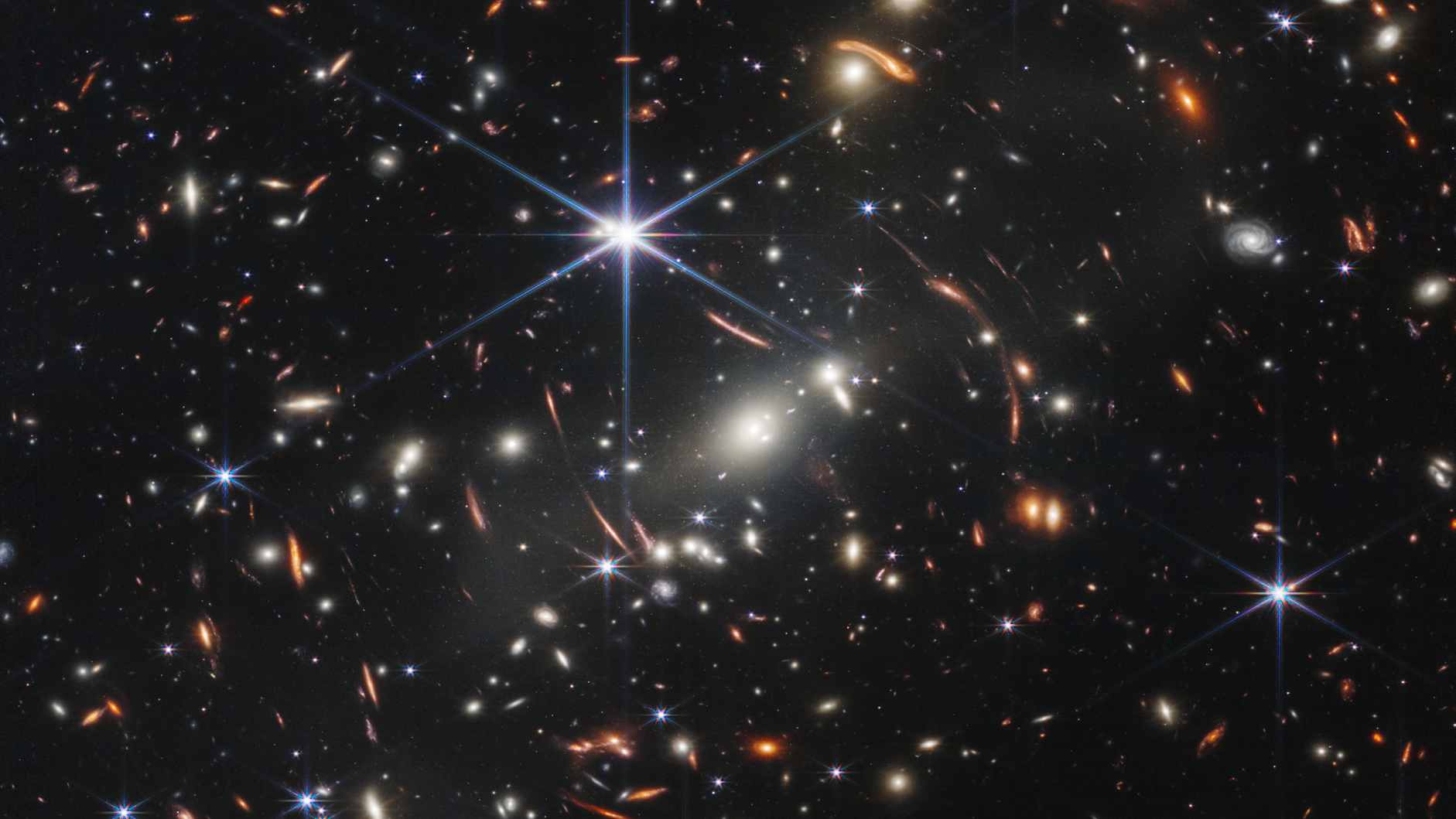Fowl play: Turkey turmoil at NASA center in California
It's not rocket science to chart the trajectory of these flyers.
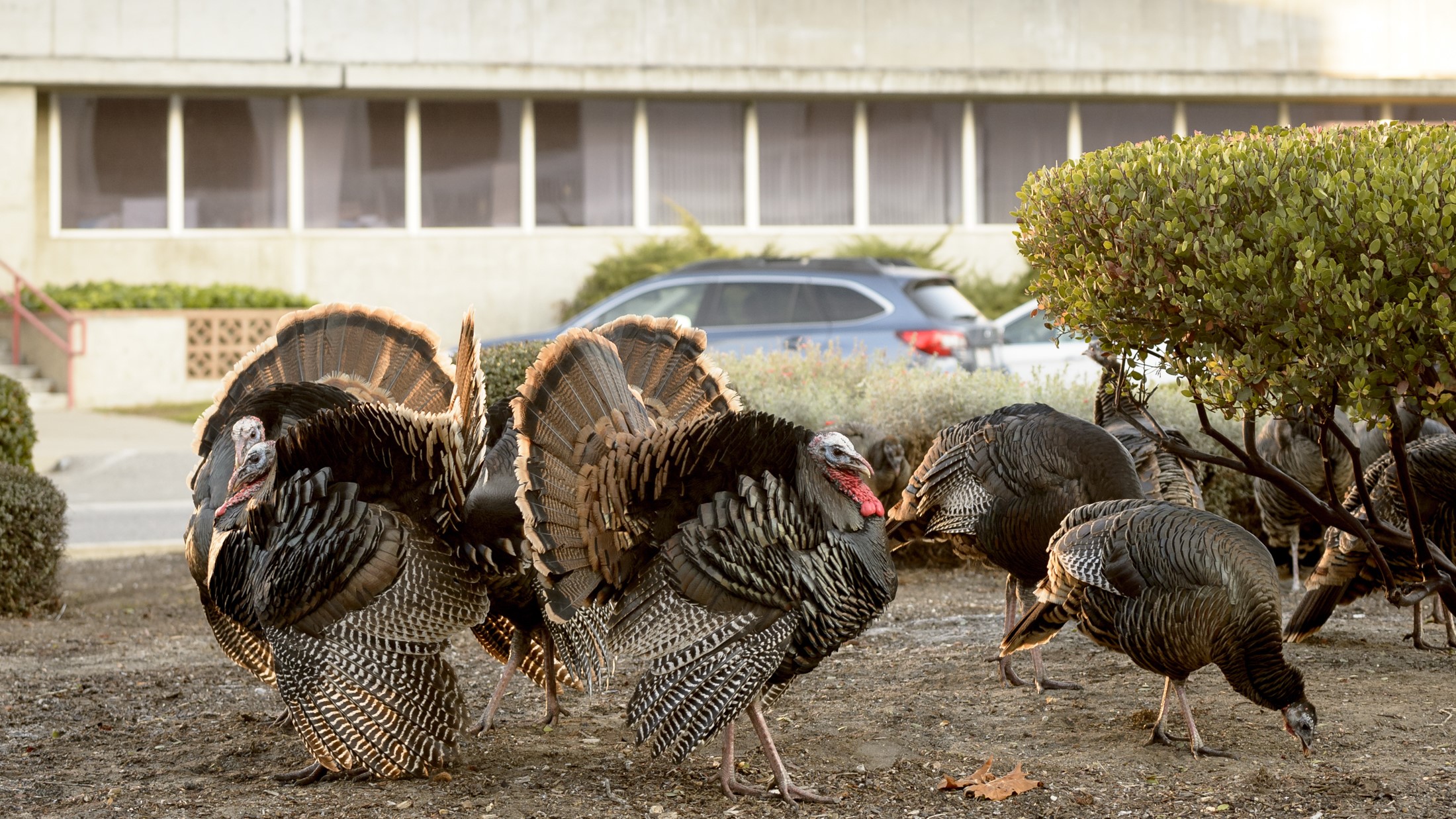
A flock of wild turkeys has gotten a little too interested in space exploration, so a NASA facility is helping the hefty birds explore a nice reserve instead.
NASA's Ames Research Center in California just south of San Francisco covers some 500 acres and hosts scientists working on topics from exoplanets to flight technology — as well as, lately, about two dozen rowdy turkeys, according to reports from local news agencies. Ames has called in the California Department of Fish and Wildlife and the U.S. Department of Agriculture to attempt to relocate the birds to San Antonio Valley Ecological Reserve, about 50 miles (80 kilometers) east of the space center.
"While they [the turkeys] currently pose minimal impact to the NASA community, biologists are humanely trapping and relocating them to an ecological reserve in Santa Clara to roam freely," a NASA Ames spokesperson told Space.com in an email. "This measure protects the safety and well-being of the turkeys, as well as the Ames community and workforce."
Related: This new space station tech is for the birds (and all wildlife, really)
The turkeys' future home sounds pretty cushy. "There's already a small population of turkeys there, and it's a turkey habitat," Ken Paglia, a spokesperson for the California Department of Fish and Wildlife, told local TV station KTVU, noting that the reserve covers about 3,000 acres. "They have food, water, and everything a turkey needs."
The situation appears a little more fraught at the NASA center. "Wild turkeys have been pecking at cars and windows, blocking traffic, leaving droppings around buildings and HVAC equipment and posing a threat to aircraft operations," according to The Mercury News.
USDA spokesperson Tanya Espinosa told The Mercury News that people have been feeding the turkeys at Ames, making the situation more difficult. Normally, Paglia noted to the newspaper, the government would not step in to relocate the animals.
Get the Space.com Newsletter
Breaking space news, the latest updates on rocket launches, skywatching events and more!
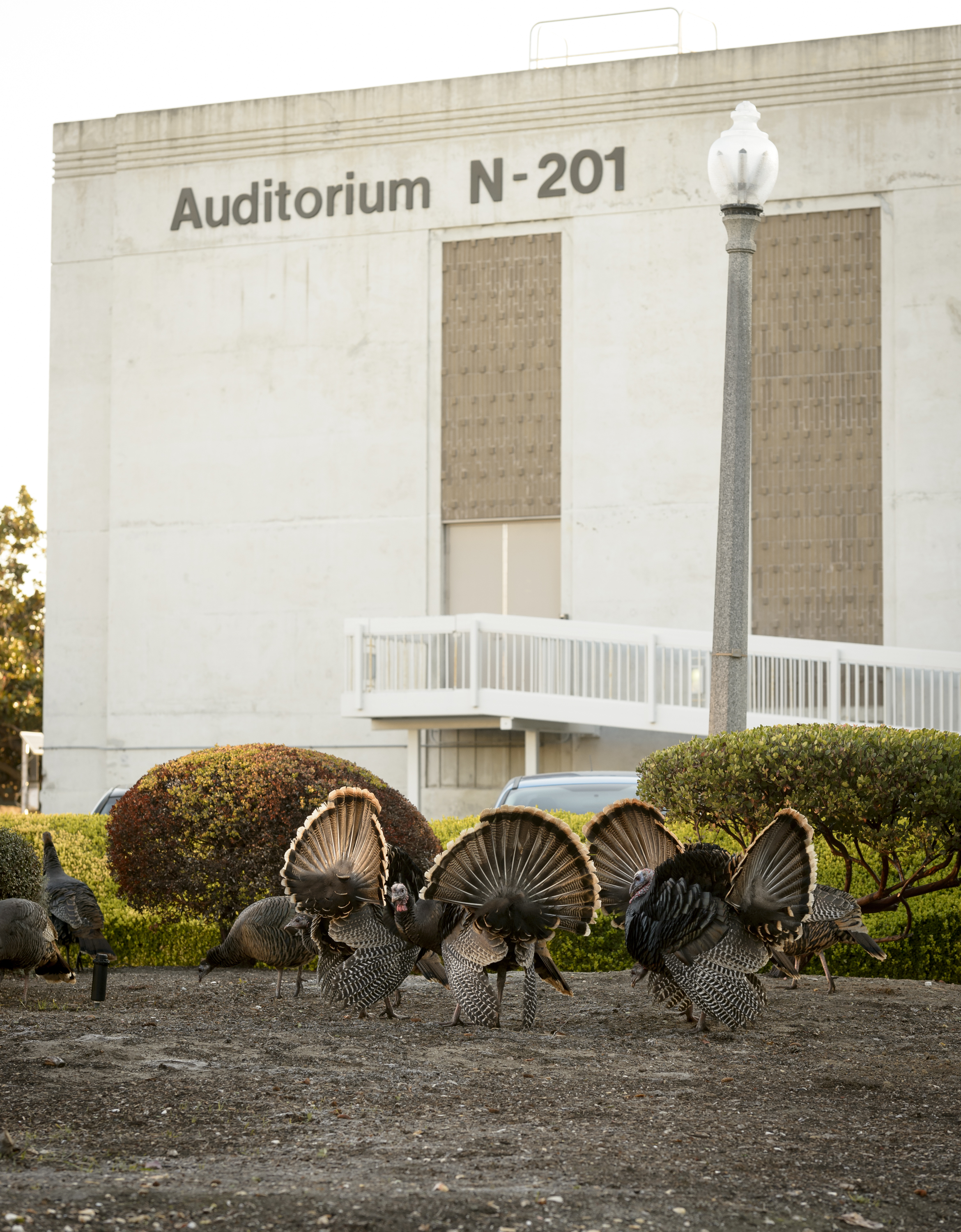
Officials involved in the turkey response are particularly concerned about timing, as the birds are due to begin nesting soon — which could spell more trouble for Ames. The relocation "will help ensure that the young turkeys don't learn from older turkeys in regards to damaging cars and landscaping," Espinoza told The Mercury News.
NASA personnel are particularly concerned about the birds because the facility tests airplanes and related technology, although so far, the turkeys have steered clear.
"Turkeys have gotten close to Moffett Federal Airfield but none have entered the airfield and there have been no incidents, no near misses, or close calls either," the NASA Ames spokesperson told Space.com. "Relocation of the turkeys helps to make sure none of that has the potential to happen in the future."
Email Meghan Bartels at mbartels@space.com or follow her on Twitter @meghanbartels. Follow us on Twitter @Spacedotcom and on Facebook.
Join our Space Forums to keep talking space on the latest missions, night sky and more! And if you have a news tip, correction or comment, let us know at: community@space.com.

Meghan is a senior writer at Space.com and has more than five years' experience as a science journalist based in New York City. She joined Space.com in July 2018, with previous writing published in outlets including Newsweek and Audubon. Meghan earned an MA in science journalism from New York University and a BA in classics from Georgetown University, and in her free time she enjoys reading and visiting museums. Follow her on Twitter at @meghanbartels.






